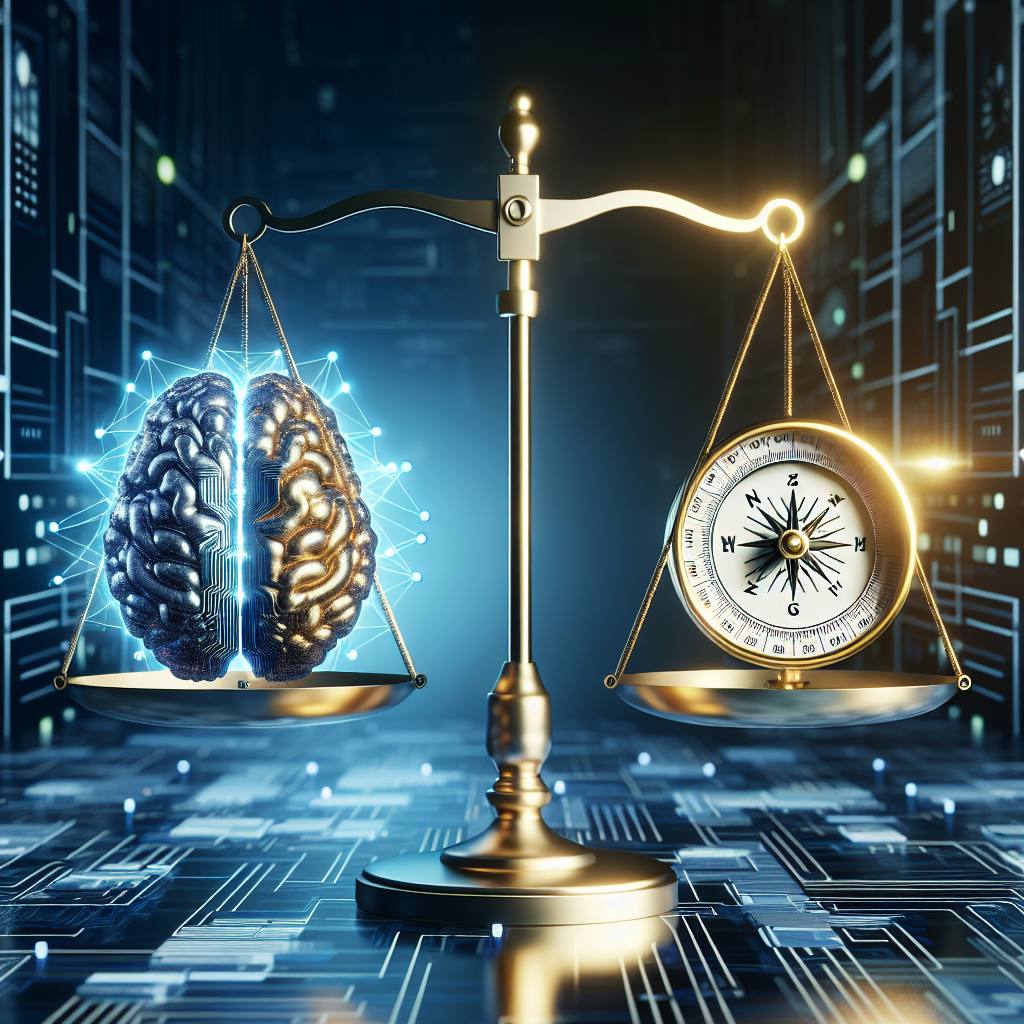Artificial General Intelligence (AGI) refers to the hypothetical intelligence of a machine that can successfully perform any intellectual task that a human being can do. As we move closer to the development of AGI, the ethical implications of creating intelligent machines become increasingly important to consider. In this article, we will explore the moral dilemmas of AGI and how we can navigate them in a responsible and ethical manner.
The Ethics of AGI
One of the primary ethical concerns surrounding AGI is the potential impact on society and humanity as a whole. As intelligent machines become more advanced, there is a fear that they could surpass human intelligence and pose a threat to humanity. This concern is often referred to as the “singularity,” a hypothetical point in the future when AI surpasses human intelligence and may lead to unpredictable outcomes.
Another ethical consideration is the issue of autonomy and responsibility. If AGI is able to make decisions and take actions on its own, who is responsible for the consequences of those decisions? Should machines be held accountable for their actions, or should the responsibility fall on the humans who created and programmed them?
Privacy and security are also important ethical concerns when it comes to AGI. Intelligent machines have the potential to collect and analyze vast amounts of data about individuals and societies, raising questions about how that data should be used and protected. There is a risk of privacy violations and security breaches if AGI is not developed and implemented with ethical considerations in mind.
Furthermore, there are concerns about the impact of AGI on the job market and economy. As machines become more intelligent and capable of performing a wide range of tasks, there is a fear that they could replace human workers and lead to widespread unemployment. This raises questions about how society should adapt to a future where many jobs are automated, and how we can ensure that the benefits of AI are shared equitably.
Navigating the Moral Dilemmas of Intelligent Machines
To navigate the moral dilemmas of AGI, it is essential to approach the development and implementation of AI with a strong ethical framework. This includes considering the potential impact of AI on society and humanity, as well as prioritizing transparency, accountability, and fairness in the design and deployment of intelligent machines.
One key principle to consider is the concept of “AI alignment,” which refers to the idea of ensuring that the goals and values of AI systems are aligned with those of humans. This involves designing AI systems that are aligned with human values and ethical principles, and that prioritize the well-being and interests of humanity.
Another important ethical consideration is the principle of “machine ethics,” which involves developing AI systems that are capable of making ethical decisions and behaving in a morally responsible manner. This includes incorporating ethical principles and guidelines into the design and programming of AI systems, as well as ensuring that they are able to recognize and respond to ethical dilemmas in a way that is consistent with human values.
Transparency and accountability are also crucial when it comes to navigating the moral dilemmas of AGI. It is essential that AI systems are transparent about how they make decisions and the data they use, so that users and society as a whole can understand and trust the technology. Additionally, there must be mechanisms in place for holding AI systems accountable for their actions and ensuring that they are used ethically and responsibly.
FAQs
1. What are the ethical concerns surrounding AGI?
The ethical concerns surrounding AGI include the potential impact on society and humanity, issues of autonomy and responsibility, privacy and security, and the impact on the job market and economy.
2. How can we navigate the moral dilemmas of AGI?
We can navigate the moral dilemmas of AGI by approaching the development and implementation of AI with a strong ethical framework, including principles such as AI alignment, machine ethics, transparency, and accountability.
3. What is AI alignment?
AI alignment refers to the idea of ensuring that the goals and values of AI systems are aligned with those of humans, and that AI systems prioritize the well-being and interests of humanity.
4. What is machine ethics?
Machine ethics involves developing AI systems that are capable of making ethical decisions and behaving in a morally responsible manner, and incorporating ethical principles and guidelines into the design and programming of AI systems.
5. Why is transparency and accountability important in AI development?
Transparency and accountability are important in AI development to ensure that AI systems are transparent about how they make decisions and the data they use, and to hold AI systems accountable for their actions and ensure that they are used ethically and responsibly.

